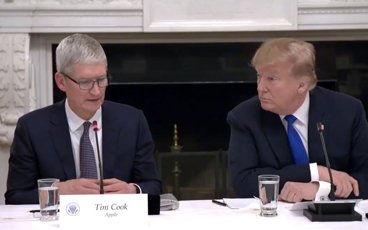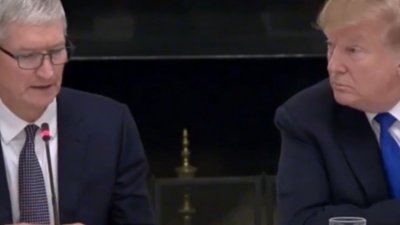Apple in December was served, and complied with, a request from Chinese authorities to remove all instances of the New York Times news app from its regional App Store for violating unspecified local laws.
Highlighted in a report from The New York Times on Wednesday, Apple's decision comes as the company performs a delicate balancing act between tapping into China's booming middle class and adhering to its stringent media ruleset.
According to the report, Apple without warning removed both English and Chinese version of the NYT app from its China App Store on Dec. 23. The publication notes apps from other international news organizations are still live, suggesting The Times was targeted in the takedown.
"We have been informed that the app is in violation of local regulations," said Apple spokesman Fred Sainz. "As a result, the app must be taken down off the China App Store. When this situation changes, the App Store will once again offer the New York Times app for download in China."
Sainz did not disclose how Apple was notified of the infraction or by whom, nor did he elaborate on whether the company had been served a court order forcing the app's removal. The Times speculates the request or legal entreaty might be rooted in a new set of regulations called Provisions on the Administration of Mobile Internet Application Information Services.
Released in June 2016 by the Cyberspace Administration of China, a body which oversees internet censorship, the "mobile internet application information service management regulations" relate specifically to apps, saying such software may not be used to "endanger national security, disrupt social order, violations of the legitimate rights and interests of other laws and regulations prohibit activities." Germane to the NYT app, the rules expressly prohibit the publication and dissemination of "information prohibited by laws and regulations."
The stipulation on content is at the crux of the matter, according to The Times. Of note, Chinese government agencies began blocking NYT websites in 2012 after the publication posted a series of articles critical of former prime minister Wen Jiabao. While the CAC and other branches were successful in censoring internet content, they had difficulty blocking people from reading the same news through the Chinese-language iOS app, The Times said.
Apple has in the past promised to comply with the rules and regulations of countries in which it operates. However, as seen in last year's kerfuffle with the FBI, Apple is not one to roll over when its stated core tenets of user privacy, inclusion and free speech are threatened.
While The Times does not lay direct blame on Apple for yanking its app, the tenor of today's article implies the company is putting profits ahead of principles. In particular, the timing of the app's removal is suspect, as the publication was working on a number of stories pertaining to the Chinese government. One story, published on Dec. 29, revealed billions of dollars in "hidden perks and subsidies" the Chinese government gives to Foxconn.
On Dec. 23, the same day that the NYT app was pulled from China's App Store, a Times reporter contacted Apple's media team and the Chinese government about the article. Whether the line of questioning resulted in the app's removal is unclear.
 Mikey Campbell
Mikey Campbell







-m.jpg)






 Christine McKee
Christine McKee
 Charles Martin
Charles Martin
 Wesley Hilliard
Wesley Hilliard

 Malcolm Owen
Malcolm Owen

 William Gallagher
William Gallagher










36 Comments
Businesses are all about the money. Everything else is marketing. If the U.S. were to pass laws requiring back doors to Apple’s products then Tim Cook would comply rather than shut down Apple, ethics be damned.
Shame on Apple. Shouldn't they try to make the regulators work a bit harder to at least produce some evidence that an violation indeed happened? Apple is walking down a very slippery slope. I wish Apple can put up a fight when a fight is called.
I realize that this is a very tough decision.
While part of the obligation of being a global company is to obey local laws (or not compete there at all), it is truly unfortunate that Apple had to do this. The Chinese government restricts US tech firms from operating there in all sorts of insidious ways, restricts free flow of information and knowledge (which also takes a toll on US companies more than most others, given their huge roles in global media and tech), and is pretty draconian -- i.e., no appeals to, say, a fair judiciary -- about its decisions. (Think, e.g., of how Samsung was able to take Apple all the way to SCOTUS and win -- can you imagine that happening in China?).
I am not at all a fan of Trump, but there's one area in which I am truly rooting for him to succeed (and am distressed at the passivity, even supineness, of the US in the past): call out China on its trade, investment, and freedom-of-doing-business policies. Tough luck in the short run if you're a shareholder. I say that as an Apple shareholder (and whose portfolio includes Apple as a sizable part). China will come to the table, and negotiate.
Add: Much as we like to razz Google in these boards, they did have the guts to walk away from Mainland China when something similar happened some years ago where they were asked to turn over information on dissidents and such to the Chinese government. Kudos to them.